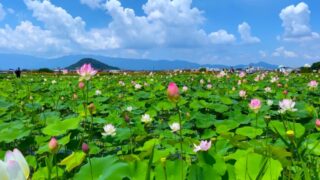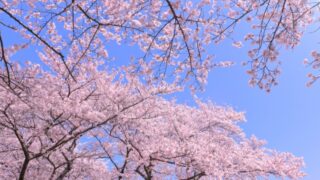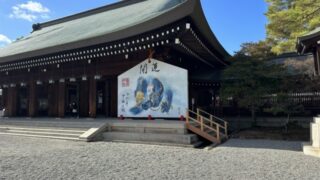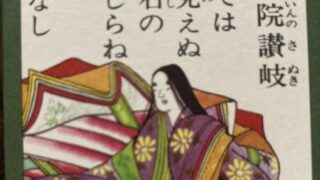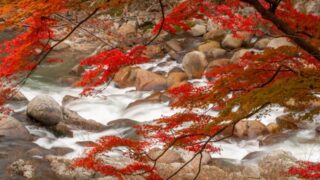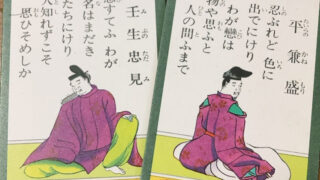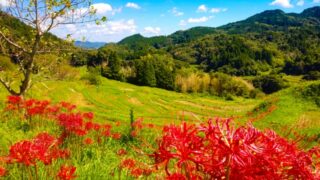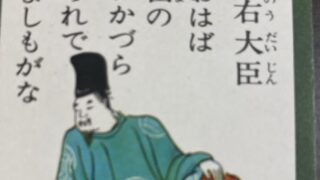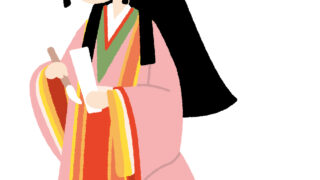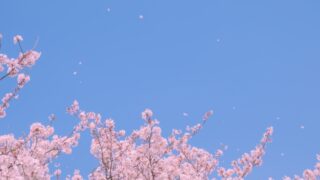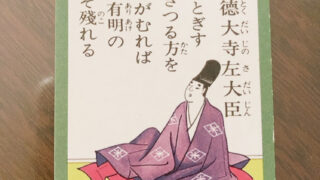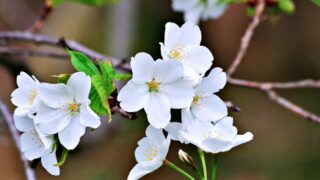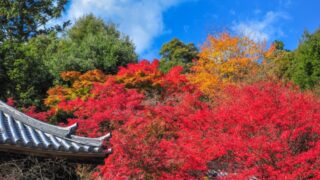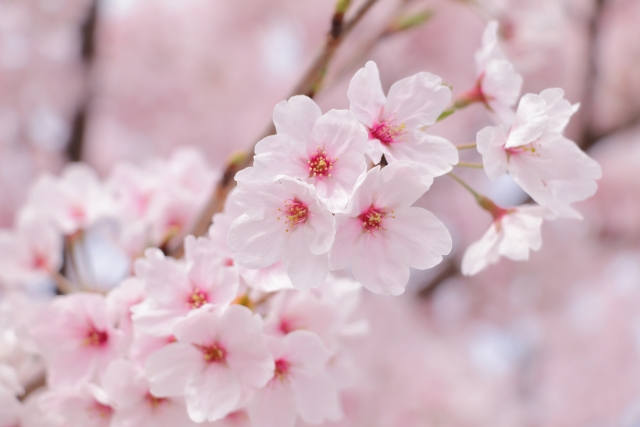東京でも桜の花が見ごろを迎えているようです。
今回紹介するのも桜の歌です。百人一首でいちばん有名な歌です。桜が散っていく様子に、自分の老いを重ねて詠んだ歌です。
The cherry blossoms seem to be in full bloom in Tokyo.
The poem introduced here is also about cherry blossoms. It is the most famous poem in the Hyakunin Isshu. The poet saw her aging in the falling cherry blossoms and composed this poem.
花の色は うつりにけりな いたづらに わが身よにふる ながめせしまに
小野小町
百人一首 九番
古今和歌集 春
おののこまち
ひゃくにんいっしゅ きゅうばん
こきんわかしゅう はる
かな
はなのいろは うつりにけりな いたづらに わがみよにふる ながめせしまに
言葉の意味
| 花の色は | はなのいろは | the color of flowers |
| うつりにけりな | 色あせてしまった | has faded |
| いたづらに | むなしく | in vain |
| わが身 | 自分自身 | myself |
| 世にふる | 年を経る | aging |
| ながめせしまに | 眺めている間に | during viewing |
日本の古典で「花」という時は、「桜」を意味しています。「ふる」は「年を経る(今は「
経る」と読みます)」と「雨がふる」をかけています。「ながめ」は「眺める」と「長雨」をかけています。「かける」とは、意味の違う同じ音の言葉を使って、意味を重ねるテクニックのことです。
When the word, 花 is used in the Japanese classics, it usually means cherry blossom. “ふる” is a combination of “年を経る/passing of the years” and “雨がふる/rainfall. “ながめ” is a combination of “眺める/view” and “長雨/long rain. “かける” is a technique of layering meanings using words with the same sound but different meanings
| ~を意味する | ~をいみする | mean ~ |
| 意味を重ねる | いみをかさねる | layer meaning |
現代語訳
花の色は色あせてしまいました。長雨の降っている間に。私も年をとってしまいました。恋や世の人のことに思い悩んでいる間に。
The color of the flowers has faded during the rainy days. I too have grown old. While I am worrying about the romances and the people of the world.
桜がきれいな時期は短いのですが、月日が経つのも本当に早いです。もう、本当にあっという間に年をとってしまいますね。年を重ねると、誰もが「年をとってしまった」と思います。美しさは消えるし、体力はなくなるし、「あぁ、もう」などと思います。そんな気持ちを散っていく桜に重ねたのですね。
The beautiful cherry blossom season is short, but the months also go by really fast. People grow old in a flash. As we get older, we all feel “I’m getting older.” Beauty disappears, physical strength is gone, and we think, “Oh.” These feelings are superimposed on the falling cherry blossoms.
この歌の作者の小野小町は、とても美しく頭のいい女性だったと言われています。多くの恋をして、たくさんの美しい歌を残しました。以下の歌も小野小町の歌です。
「思ひつつ寝ればや人の見えつらむ 夢と知りせば覚めざらましを」
あの人のことを思いつつ寝たから、夢に出てきたのでしょう。夢だと知っていたら、起きなかったのに。
「君の名は」の新海誠監督は、上の歌に着想を得て、この作品を作ったそうです。1000年以上前の作品に影響を受けて、大ヒット作が生まれました。
Ono no Komachi, the author of this poem, is said to have been a very beautiful and intelligent woman. She had many loves and left many beautiful poems. The following poem is also by Ono no Komachi.
I guess I fell asleep while thinking about that person, and that is why he appeared in my dream. If I had known it was a dream, I would not have woken up.
The director of “君の名は/Your name”, Makoto Shinkai, was inspired by the above song to create this film. The blockbuster hit was born, inspired by a work that is over 1000 years old.
| ~に思い悩む | ~におもいなやむ | worry about ~ |
| 世 | よ | world, society |
| 月日が経つ | つきひがたつ | time passes |
| 年を重ねる | としをかさねる | grow old |
| 着想を得る | ちゃくそうをえる | be inspired |
| ~に影響を受ける | えいきょうをうける | be influenced by ~ |
N3文法
~間に、…。 While ~, …
~ expresses a continuous action or state. … expresses a momentary action or change.
お母さんが昼寝をしている間に、子ども達は遊びに出かけた。
お風呂に入っている間に、配達の人が来た。
世の中のことに思い悩んでいる間に、年をとった。
「あっという間に」は慣用句として覚えてください。
Remember “あっという間に/in a flash” as an idiom.
ここまで読んでくれてありがとうございました。
今日は友だちと花見に行きます。年を重ねた友だちと話をするのは、若いころとはまた違った楽しさがあります。
Thank you for reading this far.
Today I am going to a cherry blossom viewing party with friends. Talking with friends now is a different kind of fun than when I was younger.
令和六年四月七日
